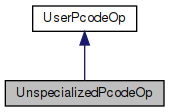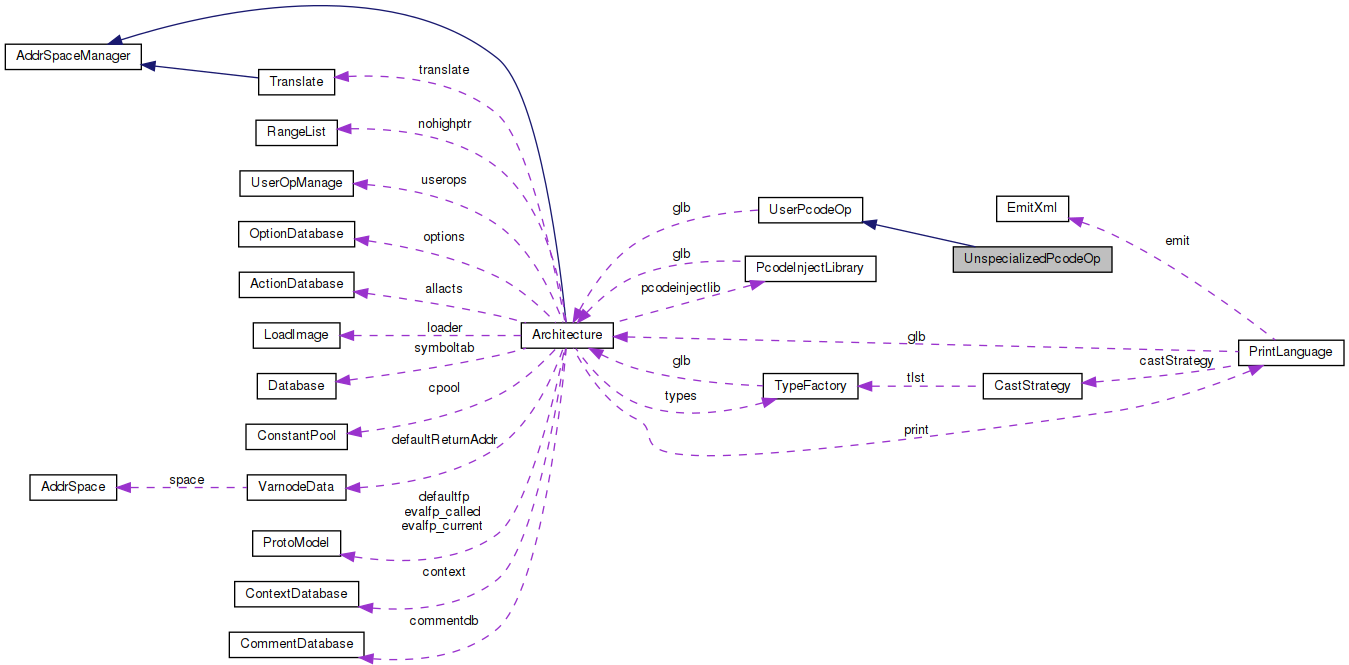A user defined p-code op with no specialization. More...
#include <userop.hh>
Inheritance diagram for UnspecializedPcodeOp:

Collaboration diagram for UnspecializedPcodeOp:

Public Member Functions | |
| UnspecializedPcodeOp (Architecture *g, const string &nm, int4 ind) | |
| Constructor. | |
| virtual void | restoreXml (const Element *el) |
| Restore the detailed description from an XML stream. More... | |
 Public Member Functions inherited from UserPcodeOp Public Member Functions inherited from UserPcodeOp | |
| UserPcodeOp (Architecture *g, const string &nm, int4 ind) | |
| Construct from name and index. | |
| const string & | getName (void) const |
| Get the low-level name of the p-code op. | |
| int4 | getIndex (void) const |
| Get the constant id of the op. | |
| virtual | ~UserPcodeOp (void) |
| Destructor. | |
| virtual string | getOperatorName (const PcodeOp *op) const |
| Get the symbol representing this operation in decompiled code. More... | |
Additional Inherited Members | |
 Protected Attributes inherited from UserPcodeOp Protected Attributes inherited from UserPcodeOp | |
| string | name |
| Low-level name of p-code operator. | |
| int4 | useropindex |
| Index passed in the CALLOTHER op. | |
| Architecture * | glb |
| Architecture owning the user defined op. | |
Detailed Description
A user defined p-code op with no specialization.
This class is used by the manager for CALLOTHER indices that have not been mapped to a specialization. The p-code operation has the (SLEIGH assigned) name, but still has an unknown effect.
Member Function Documentation
◆ restoreXml()
|
inlinevirtual |
Restore the detailed description from an XML stream.
The details of how a user defined operation behaves can be dynamically configured from an XML tag.
- Parameters
-
el is the root XML element describing the op
Implements UserPcodeOp.
The documentation for this class was generated from the following file:
 1.8.13
1.8.13